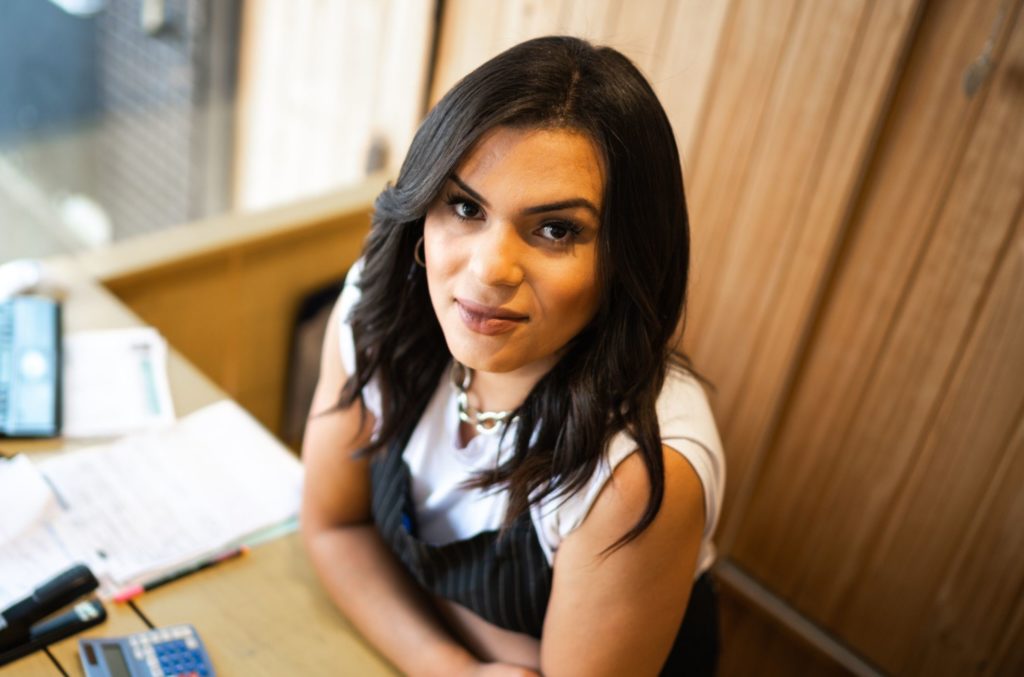Anxiety, your body’s response to stress, is a natural and adaptive part of human biology. But for people with anxiety disorders, the experience has stopped helping and started hurting.
One way to navigate the difficulty is to become familiar with your anxiety triggers. Once you know what triggers anxiety for you, you’ll be able to use strategies and techniques like the ones we’ll share to help manage the experience.
Anxiety, your body’s response to stress, is a natural and adaptive part of human biology. But for people with anxiety disorders, the experience has stopped helping and started hurting.
One way to navigate the difficulty is to become familiar with your anxiety triggers. Once you know what triggers anxiety for you, you’ll be able to use strategies and techniques like the ones we’ll share to help manage the experience.
What is a trigger?
Anxiety can occur for many reasons, including a genetic predisposition, chemical imbalances in the brain, personality, and mental habits, like perfectionism and negative self-talk. But it can also be triggered by external circumstances or situations.
Some common symptoms of anxiety are things like:
- Restlessness and unease
- Not being able to stop worrying
- Irritation or anger
- Difficulty focusing
- Issues with memory
- Indecision
- Increased heart rate
- Muscle tension
- Fatigue
- Sweating
While the experience of anxiety differs from person to person, these symptoms are some of the widely shared manifestations. Over time, anxiety can have detrimental effects on your body.
Learn how to stop panic with tools that work anytime, anywhere.
What triggers anxiety?
But what is it that triggers anxiety? It turns out that certain situations cause anxiety pretty universally. For instance, speaking in front of a crowd would make most people feel anxious. These are common triggers since they’re experiences that apply to many people.
But some things may cause you anxiety that wouldn’t apply to other people. These are usually reminders of bad memories or traumatic events that are based on your unique life experiences.
Common triggers
If you experience anxiety in response to the following events and situations, you’re not alone. Some of the most common anxiety triggers are:
- Performing
- Public speaking
- Taking a test
- Health conditions
- Social interactions
- Medications and drugs
- Caffeine
- Sleep disturbances like insomnia
- Low blood sugar
- Money issues
- Difficulty in personal relationships
- Global or political conflict
- Stress at work or school
- Emotional trauma, including racial trauma
- Drugs and alcohol
- Significant life changes (even if the change is positive)
Personal triggers
Identifying personal triggers is more complicated. Because these occur for you as an individual, it can take time and professional guidance to identify them successfully.
A personal trigger might be something like a specific place or something you experience with your sense of smell or sound. Whatever it might be, this reminds your mind and body of something that caused you stress or trauma in the past.
Personal triggers can be conscious—that is, you understand what caused a surge in anxiety— or they may be unconscious, meaning you suddenly experienced severe anxiety without an apparent cause. A mental health professional can help you identify unconscious anxiety triggers so you can learn to care for yourself appropriately when they arise.
How to identify yours
One way to identify your triggers is to recall the situations where you felt the most anxious. It can help draw a line to represent the anxiety spectrum. Then mark where on this spectrum line an event or experience lands. You can also keep track of events and circumstances that trigger your anxiety as they occur, so you have a running list available.
Talking to an old friend might cause no anxiety, while ordering food at a restaurant may cause mild anxiety. Talking aloud in a group setting may cause a lot of anxiety, and speaking in front of a crowd into a microphone might be the most significant trigger.
Once you identify your personal triggers, you may notice underlying themes. For instance, in the example above, the situations all seem different. But the fundamental similarity is being in a position where you may feel judged.
One of the difficulties with anxiety is the way it impacts thinking. Because anxiety can cloud your mind and make it challenging to see causes clearly, it can be beneficial to work with a mental health professional. Someone with professional training can support you to see the patterns or common themes underlying a seemingly disparate group of triggers.
Learn why sexual performance anxiety happens and how to stop it.
Managing triggers
It’s helpful to have a sense of the situations that trigger severe anxiety for you. No one can have an anxiety-free life, but you can prepare for and reduce the impact of triggering situations.
Knowing your triggers provides useful info in advance as you build up a range of coping and distress tolerance skills.
Triggers include events that are outside of your control, such as getting bad news or facing the stress of a new life challenge. But they also include factors on which you can have a direct impact.
That’s because triggers can also occur as thoughts, beliefs, and bodily reactions. Some examples are ruminating over insecurities or misinterpreting a physical sensation that causes anxiety to escalate.
Prevention
How does knowing triggers help prevent anxiety? Let’s say a trigger for you is going to an audition. Maybe you even had an awful experience “freezing up” and starting to cry because you had such extreme anxiety at a previous audition.
Being in a position of feeling judged or evaluated is the most common trigger of all! Most of us experience anxiety in situations like this one.
Knowing this is a trigger is not a call to ruminate about the audition. It’s a piece of information that can help you stock up on preparation and coping tools before audition day.
Try mindful breathing to calm anxiety and panic.
Coping with triggers
Say you experience social anxiety, and you’re set to give a presentation in front of a large group. You’ve been taking good care of yourself by identifying situations that cause you anxiety, so you know that situations like this one are triggering.
Here are 7 coping strategies that can help you face the upcoming challenge with more support.
1. Reframe the trigger.
Public speakers and those who are about to go into business negotiations often reframe situations like these aloud. Try affirmations like this one out loud: “I am super excited!”
The physical cues for excitement and anxiety are often identical: racing heart, sweaty palms, feeling hot or flushed, agitation, and muscle tension. Emotionally and cognitively reframing fear or anxiety as excitement won’t shift what is happening, but it may shift your experience of what’s happening. Excitement contains energy and enthusiasm, which can take the place of rumination and unease.
Discover more tools to re-frame negative thought patterns.
2. Make a schedule.
Leave ample time in your schedule to prepare and utilize some calming skills. Similarly, making plans you look forward to afterward gives you something to look beyond just the triggering event or situation. This can be simple—a walk in the park, reaching out to someone you care about, or an occasion like meeting a friend for a stroll or meal.
3. Create a ritual.
Make some time and plan calming rituals before an anxiety-provoking situation. For example, you can reduce anxiety by enjoying a cup of tea, wearing a favorite sweater, and listening to motivational music or a relaxing talk before entering the situation.
4. Bring a comfort object.
Many people wear or carry comfort objects or talismans. These can be a favorite item of jewelry, a fidget toy, or a symbolic ornament or souvenir. Try bringing along an object which symbolizes comfort, for instance, a bracelet from a dear friend. You can also bring something that provides a tactile outlet, like a smooth stone amulet or squishy stress ball.
Learn more about weighted blankets for anxiety.
5. Use levity and humor.
One way to counteract the tendency to clench up when you feel anxious is to smile and laugh. When you smile, it comes through in your voice. Laughter therapy has been a technique used in stress reduction since the 1960s.
You might already do this since humor and laughter are common ways to reduce anxiety. You can pre-empt anxiety by smiling and briefly listening to, watching, or just thinking of something light-hearted or funny. Some people save their favorite movie clips or social media memes for a quick mood boost pick-me-up.
6. Repeat a mantra or slogan.
Ever notice how coaches, parents, and teachers often encourage with a mantra? This is a short message meant to be repeated like, “Just keep swimming,” “practice, not perfection,” or “you’ve got this!”
These are helpful messages to affirm regularly in place of your anxious thoughts. Rather than getting caught up in overthinking or catastrophizing, you’re helping boost your mood and reorient your perspective.
7. Be accommodating.
It may sound counterintuitive, but try to make friends with, or at least accommodate, the unavoidable experience of anxiety. It’s not your fault you’re having this experience. It probably doesn’t seem like it now, but these feelings are your biology’s way of trying to protect and care for you.
Try to accommodate your experience by practicing additional self-care ahead of, during, and after known triggers. And remember, you’re not alone. You can bring others into your self-care strategies.
For example, if you know that a social event is what triggers anxiety, you can let a trusted friend know in advance that you may be more quiet than usual or that you’ll need to step outside for air periodically. Naming this ahead of time keeps you accountable, reduces any potential awkwardness at the moment, and enlists the support of someone who cares.
Accommodating anxiety isn’t about avoidance. Taking active steps to manage your experience allows you to show up for life, even when it’s hard.
Learn healthy ways to cope with grief and loss.
When to seek medical advice
If anxiety interferes with your ability to live life on a daily basis and to care for yourself, please talk to a medical or mental health professional. You don’t have to wait for it to get worse before seeking help.
If the tools we suggest here aren’t working for you, it may be time to consider additional strategies. Many people benefit from working with a trained therapist. You may also want to think about trying non-habit-forming medications to reduce the intensity of your anxiety.
Visit Lemonaid to consult with a medical professional and see if medication would be the right choice for you.
Takeaway
- Anxiety triggers are events and situations that cause a swell of anxious or apprehensive feelings.
- They can be common triggers, like public speaking, or personal, based on your individual experience.
- Once you identify your triggers, you can use targeted coping strategies to help manage them.












